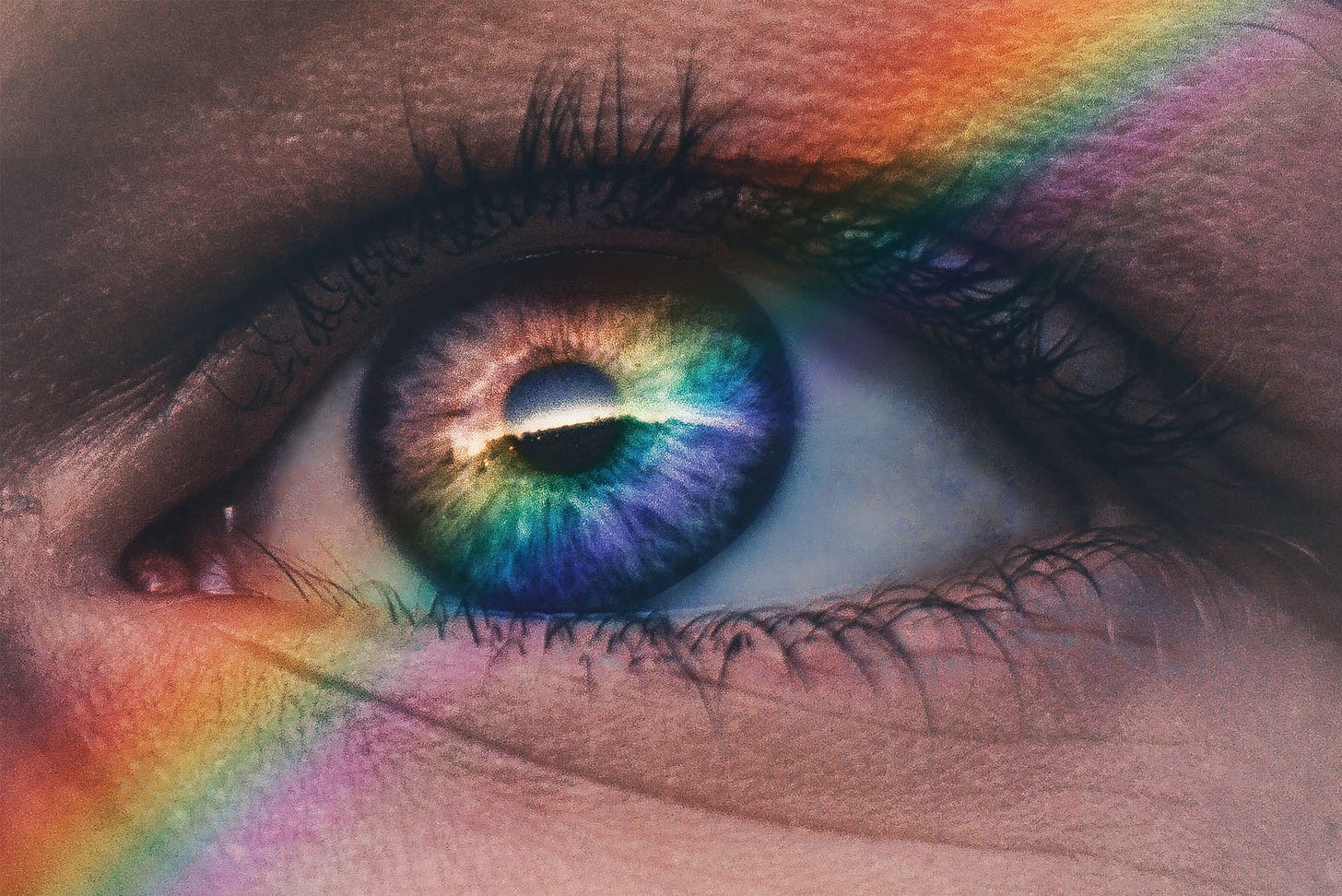Combine Your Logic and Emotions Instead of Choosing Between Them
Don't limit yourself to a life of "either, or"
Hiya!
One of humanity’s best and worst attributes is our obsessive need to simplify everything and reduce complex situations into binary categories of right or wrong and good or bad. We love labeling and contorting ourselves, others, and even ideas into boxes Marie Kondo-style. This habit is no secret; we all do it.
We self-inflect binary thinking in several ways, like when we choose our social groups and the people we spend our time with. It also shows in how we view our identity, like defining yourself by your career.
But we likewise apply it to how we think and what internal information we pay attention to or dismiss. More specifically, we tend to listen to either our rational mind or our emotions. When what we should do is accept that it doesn’t have to be one or the other.
The Rise of the Rational Mind
During the Enlightenment, dozens of philosophers like Descartes and scientists like Issac Newton devoted themselves to the rational mind. A time when reason, critical thinking, science, skepticism, and empiricism were celebrated.
The result of the era created a divide between science and religion that continues today. But it also built a wall between our logic and emotions.
For the last few decades or longer, especially in the West, society has continued to praise logic and reason over emotions — even though there’s plenty of evidence showing the importance of emotional intelligence. The truth is, one isn’t better than the other. They both have pros and cons, just like everything else in life.
So it stands the reason that instead of choosing between them, we should combine them. Turns out, science agrees — it’s time we train ourselves out of the Either/Or mindset so we can embrace the world of And.
Logic and Emotions
Despite slowly changing cultural norms, there’s plenty of research showing that using our emotions and rational minds when making decisions actually helps us. For instance, paying attention to both allows us to see opportunities and threats.
Think of it this way. Even though we’re prone to binary thinking, we know that opposites can complement each other, such as the yin-yang or cliches about dating. Well, that’s how logic and emotions are. Leonard Mlodinow, American theoretical physicist, mathematician, and author, explains in his book Emotional: How Emotions Shape Our Thinking,
In the past decade, scientists have begun to understand precisely how emotions and rationality act together. The key insight is that before your rational mind processes any information, the information must be selected and evaluated.
That’s where emotion plays a dominant role. Each emotion—fear, disgust, anger—causes certain sensory data, memories, knowledge, and beliefs to be emphasized, and others downplayed, in your thought processes.
Research repeatedly shows that our emotions impact our decisions. This information is becoming more well-known and is practically the playbook for marketers to sell products and politicians to get elected. Once you realize this, you can see it everywhere.
So, instead of pretending it doesn’t happen or that we’re exempt from the rule, let’s embrace it. Like any other skill, the more we practice, the better we get. The better we get, the more we benefit. I mean, I don’t see a downside. How do we achieve this? One way is by tapping into what’s known as The Wise Brain.
The Wise Brain
Boosting our self-awareness can open us to entirely new ways to exist and be mindful of how we go about it. Though the process is relatively simple — pay more attention to your thoughts without judging them and make a habit of reflecting on your behaviors — it’s not always easy. Some people might benefit from seeking professional help from a therapist for personalized tricks and support.
For instance, there’s a particular form of therapy called Dialectical Behavior Therapy (DBT). It focuses on mindfulness, distress tolerance, emotional regulation, and interpersonal effectiveness. The point is to help someone manage painful emotions and conflict. As we all know, emotions like anger and fear can consume us, and sometimes, we need a little help to see beyond them.
A critical aspect of DBT is what’s called The Wise Mind, which The University of Chicago describes as:
“what we intuitively know to be the truth under the blanket of emotions.”
The Wise Mind is where our feelings and rationality intertwine, balancing our perceptions and logic with our minds and emotions. The result is a sense of peace and ease in recognizing the calm strength of Truth, whether you speak it, hear it, or feel it.
Observation, or mindfulness, helps us separate what’s happening around us from what we’re feeling inside. This allows us to view our emotions, but we must do so without judging them. Emotions are neither good nor bad. They just are.
Perspective Shift
I like to think of my emotions as couriers sent from my subconscious to deliver a message. My job is to evaluate the message and choose whether to act on it. This simple change in perspective has made my emotions much easier to deal with than when I tried to ignore them.
There has to be a reason we have emotions and rationality. Just like we’re creative and analytical. We’re not meant to limit ourselves to one way of thinking or being. We’re too dynamic for a single label. If emotions or logic weren’t necessary, then they wouldn’t continue to play such a vital role in our lives.
The truth is, we need both because while they appear contradictory on the surface, their differences become symbiotic when combined. The world is so much more than black and white. Embrace all of the colors.
Just a reminder that you’re reading my free newsletter, Curious Adventure. If you’re itching for more, then you’ll probably enjoy my other newsletter, Curious Life.


